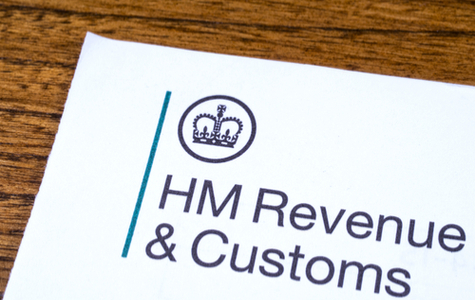
Your nearest and dearest will be well aware that you’re moving into a new property, although you’ll need to inform as many more people as you deem necessary, whether you do that in person, via text, email or on social media. Additionally, companies and organisations will also need to be informed that you have changed address, so that any important post is sent to the right place.
Read our extensive list of who to inform when moving house below, but bear in mind that it’s also worth using Royal Mail’s redirection service, in case you accidentally miss anyone.


Financial
Banks and building societies – Fail to inform your banks and building societies of a move, and you put yourself at risk of identity fraud. It only takes a matter of minutes to update your details via online chat, by phone or in branch. If you choose to send a letter instead, there will be a delay of 3 – 5 days.
Credit card and loan companies – The best way of notifying them of a change of address is by phone, although some will allow you to send a letter.
Your employer – Get in touch with your HR department and let them know your new address. You can do this in person, by phone, email or by post.
Pension companies – Changing your address only takes a matter of minutes when you do it online. Alternatively, you can drop them an email, give them a call or pop a letter in the post.









HMRC – All changes of circumstances, including a house move, require you to inform the HMRC. The easiest way to do this is online, and they will update your records on all the HMRC systems, from tax credits to benefits, income tax to national insurance.
Insurance companies – You should have already sorted out new home insurance policies for your new property, but if you haven’t, make getting both buildings and contents insurance a priority.
Local council – Update your details using your local council’s online portal, to make sure that you’re not charged for council tax for your old home once you’ve moved. You’ll need to do this, even if you’re moving out of the area.

National savings and premium bonds – You can do this by logging into your online account, via phone or by post.
Electoral register – You’ll need to re-register at your new address by visiting theGovernment’s register to vote website.
Solicitor – They should be well aware of your completion date, but it’s still worth checking.

Services and utilities
Gas and electricity suppliers – This is very important as you don’t want to be paying for energy after you’ve moved home. Inform them when you’ll be completing and then on the day itself, take a final meter reading. This should ensure that your final bill is accurate.
Water supplier – If you’re on a water meter, you’ll need to give your supplier at least a week’s notice of your move, so that they can arrange for a final meter reading. If you’re not on a meter, you should still let them know that you’re moving and give them your new address.
Broadband provider – Try and inform your provider well in advance, as some require six weeks’ notice. If there’s already a working line in your new property, you should be able to get your broadband up and running within a day or two. If not, you’ll need an engineer, so get this booked in in advance.

Telephone companies – You’ll want to let both your home phone and mobile phone companies know of your change of address. If there isn’t a telephone line already in the property you’re moving to, you’ll have to have one installed, costing up to £100.
TV licensing – It’s a legal requirement to have a TV licence to watch TV, use BBC iPlayer or watch live TV on any device, so you need to make sure you’re covered from the get-go. If you already have a TV licence, you can transfer it across easily, by updating your details. If you’re moving in with someone, and you each have a licence, you can cancel one licence and get a refund.
Sky TV or other TV provider – If you want to be able to watch TV as normal, make sure you inform your TV provider of your move at least two weeks’ in advance, so that they can book an engineer visit, within a day or two of you moving into the property. You’ll have to remember to pack all of your current equipment (apart from your dish), and take it with you, or you’ll be charged for replacements.

Health
Dentist and doctor – If you’re not moving far, the likelihood is you’ll be staying at the same practices, but you’ll still need to ring them, otherwise reminder letters and other correspondence will be sent to the wrong address. If you’re going to be using another dentist or doctor going forward, let them know your situation.
Optician – Likewise, a quick call will make sure that you don’t miss any reminder letters.
Midwife/health visitor – If you’re pregnant or have young children, let your midwife and/or health visitor know in advance, so they can update their records.
Private healthcare company – Log into your online account and update your records. Alternatively, you can write a letter or call.


Motoring
Driving licence and vehicle registration – Updating the address on your driving licence online only takes a few minutes, and you’ll be sent a new licence through the post for free. Updating your address on your vehicle log book by posting off your V5C form is straightforward too, but not doing so could be costly. You can be fined up to £1,000 if your vehicle isn’t registered to the right address, and you could miss important correspondence such as speeding tickets, which left unpaid can result in court summons and even arrest warrants being issued.
Car insurance company – You don’t want to invalidate your insurance, so make sure you notify your insurer of your change in address. You may need to pay a supplement if the crime rate is higher in your new area, as your policy was based on your current address and not your new address.
Car breakdown recovery company – Updating your address online only takes a few minutes, but it’s very important, as you want to make sure you’re covered if you breakdown.

Miscellaneous
Charities – If you support any charities, or have done in the past, it’s a good idea to contact them so they can update your details on their databases. This will make sure that any newsletters or correspondence doesn’t get sent to the wrong address.
Pet microchip database – If you have a dog or cat that’s microchipped, you’d want to be contactable if they ever went missing and were found, so make sure that you update your address, and check that your phone details are correct. If you have a cat, it will take a while for them to get used to their new surroundings, so they’ll be at a higher risk of getting lost in the weeks after your move.

Newsagents and milkman – You don’t want to end up moving home and forgetting to cancel your deliveries, so if you get newspapers or milk delivered, let the relevant person/company know as soon as you can. If you are moving close by, they might be able to deliver to your new home, so it’s worth asking.
Magazine subscriptions – Whether you get your magazines delivered weekly, monthly or quarterly, make sure they’ll be sent to your new address going forward.
Schools, colleges and universities – If you or another member of your family is currently studying, you’ll have to let the school, college or university know that you’re moving, so that correspondence doesn’t arrive at your old home once you’ve moved.




